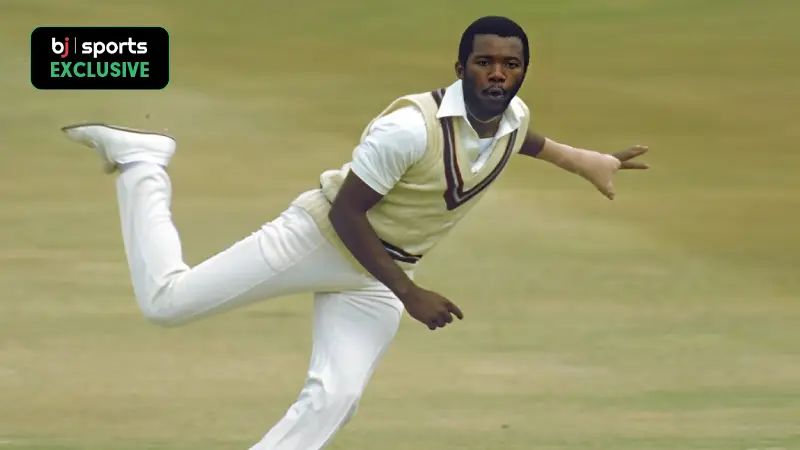Malcolm Marshall was one of the most revered and fearsome fast bowlers in cricket history. He was known for his sheer aggression with ball in hand and was also handy when it came to bat when the team needed him. It was on his day when the great man was born on April 18, 1958, in Bridgetown, Barbados. Throughout his career he was renowned for his lethal pace as well as pinpoint accuracy and relentless aggression. It will be no mistake in saying that Marshall left an indelible mark on the game during his illustrious career.
Marshall’s journey to cricketing stardom began in Barbados, where he honed his skills on the island’s competitive cricketing circuit. His exceptional talent soon caught the attention of the West Indies selectors, and he made his international debut in 1978 against India. Throughout the 1980s, Marshall formed a formidable partnership with fellow West Indian paceman Joel Garner, Michael Holding, and Andy Roberts, comprising what became known as the fearsome West Indies pace quartet. Together, they terrorized batsmen around the world with their pace, bounce, and relentless aggression.
Marshall’s bowling was characterized by his rhythmic run-up, smooth action, and the ability to generate considerable pace off the pitch. He possessed an innate understanding of seam and swing bowling, which allowed him to consistently trouble even the most accomplished batsmen. His ability to move the ball both ways off the pitch made him a nightmare for opponents in all conditions.
One of Marshall’s most memorable performances came during the 1984 Test series against England. In the fourth Test at Headingly, he produced a masterful display of fast bowling, claiming a remarkable 7 wickets for just 53 runs in the second innings to help West Indies secure victory. Marshall’s excellence extended beyond Test cricket; he was equally dangerous in the limited-overs format.
His ability to bowl Yorkers with pinpoint accuracy at the death overs made him a potent weapon in One Day Internationals (ODIs). Despite his fierce competitiveness on the field, Marshall was known for his humility and sportsmanship off it. He was a respected figure in the cricketing community, admired by teammates and opponents alike for his professionalism and integrity.
Tragically, Marshall’s life and career were cut short when he was diagnosed with colon cancer in 1999. He passed away on November 4, 1999, at the age of 41. His untimely death was a significant loss to the cricketing world, but his legacy as one of the greatest fast bowlers of all time lives on.
In recognition of his extraordinary contributions to the game, Marshall was posthumously inducted into the International Cricket Council’s Hall of Fame in 2009. His impact on cricket transcended statistics. He inspired generations of fast bowlers with his skill, passion, and unwavering commitment to excellence. Malcolm Marshall’s legacy will forever be etched in the annals of cricket history.
